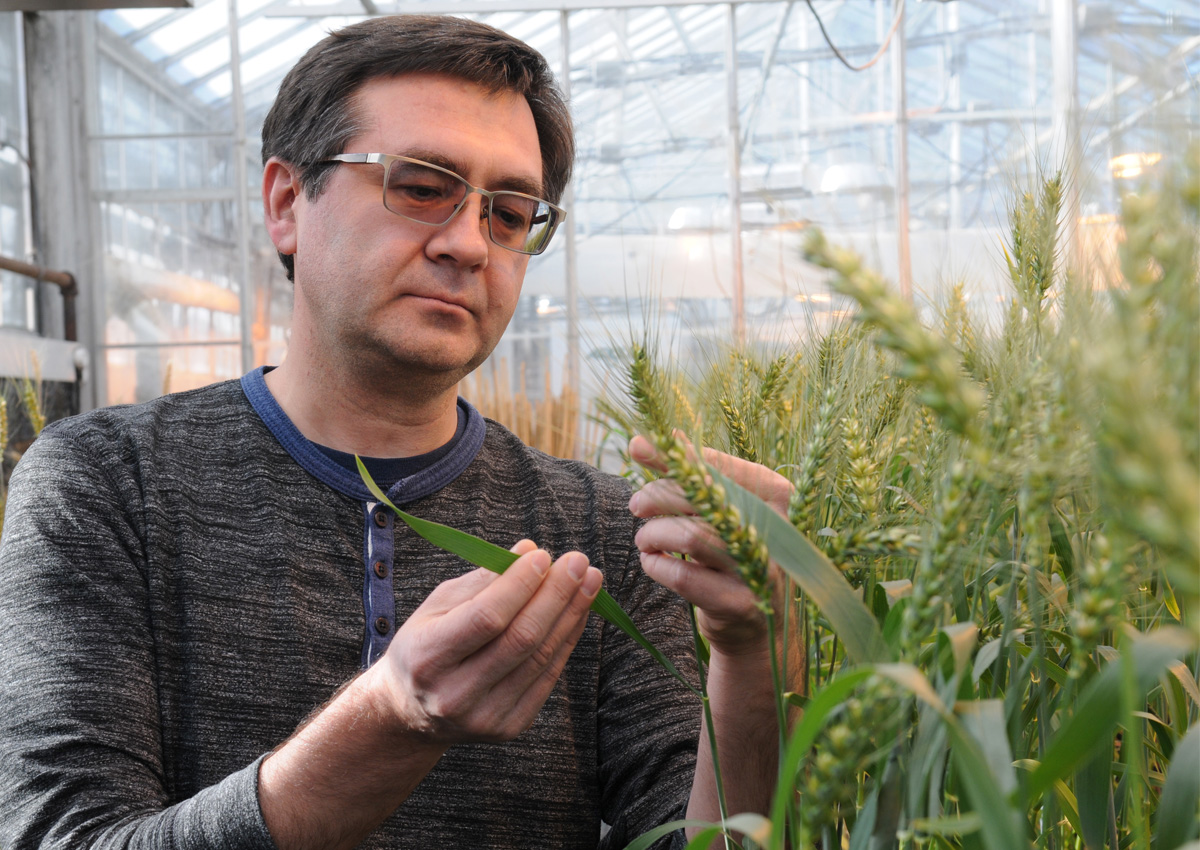
Researchers Discover Imbalanced Expression of Genes Help Improve Wheat Yield
March 9, 2022| |
Researchers from Kansas State University (K-State) have published the results of their work that characterized numerous wheat genes duplicated thousands of years ago to understand how they control the crop's yield and other desirable traits.
Led by Eduard Akhunov, wheat geneticist and director of K-State's Wheat Genetic Resources Center, said his team's research may lead to greater opportunities for breeders to perform “targeted breeding” that can increase grain size and number – ultimately increasing yields. They studied the role of gene copies available from each of the respective genomes in polyploid crops, those that contain more than two sets of chromosomes, in shaping main agronomic traits. Bread wheat, he added, is polyploid, formed nearly 10,000 years ago from merging the genomes of two wild ancestors: tetraploid wild emmer wheat (which has a genome formula known as AB) and diploid goatgrass (with genome formula D). As a result, most genes in wheat exist in three copies, one from each of the A, B, and D genomes said Akhunov.
In the current study, K-State researchers tested combinations of the gene copies to see the impact they would have on wheat's growth and productivity. The team found that there is a relatively small subset of genes where copies from different wheat genomes are expressed at different levels, referred to as an imbalanced expression of genes. This turned out to have a positive effect on wheat, in many cases increasing grain size, weight, and number. The K-State study suggests that over many years, breeders have selected combinations of imbalanced genes that positively impacted yield in diverse climatic environments.
For more details, read the article in K-State Research and Extension.
| |
You might also like:
- UC Davis Team Identifies Wheat Gene that Increases Yield
- Scientists Uncover Breeding Gold Mine Discoveries for Wheat Genetic Improvement
- Study Reveals Gene Involved in Stem Rust Resistance in Wheat
Biotech Updates is a weekly newsletter of ISAAA, a not-for-profit organization. It is distributed for free to over 22,000 subscribers worldwide to inform them about the key developments in biosciences, especially in biotechnology. Your support will help us in our mission to feed the world with knowledge. You can help by donating as little as $10.
-
See more articles:
-
News from Around the World
- Climate Change Affecting Billions of Lives; Impacts Irreversible, Latest IPCC Report Says
- Researchers Discover Imbalanced Expression of Genes Help Improve Wheat Yield
- AU Government Backs Research on Preventing Crop Frost Damage Using “Ice Nucleating” Bacteria
- Philippine Government Updates Biotech Regulations to Speed Up Approvals
- Potato Genome Decoded by German Research Team
-
Research Highlights
- New Transporter Identified to Help Balance Zinc and Iron Homeostasis in Maize
- Researchers Explore Impact of Nanomaterials on Plants under Salt Stress
- Study Provides Clues in Breeding Stress-resistant Tortured Willow
-
Read the latest: - Biotech Updates (December 10, 2025)
- Gene Editing Supplement (November 26, 2025)
- Gene Drive Supplement (February 22, 2023)
-
Subscribe to BU: - Share
- Tweet

